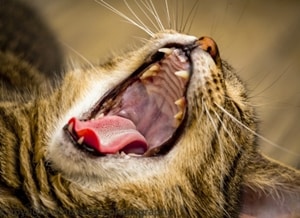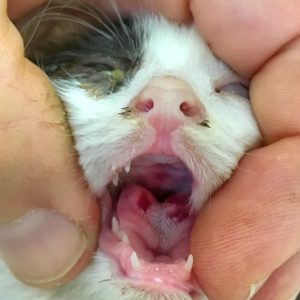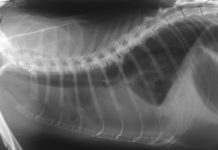Mouth inflammation and ulcers in cats –these are sore inflammatory conditions, which are seen in the mouth of cats. They create a tremendously painful condition. A cat with this kind of condition might have a hard time drinking or eating, might paw at its face, might have a bad breath, and drool. In this article, we will discuss some more interesting facts about mouth inflammation and ulcers in felines or cats including its causes, symptoms, prognosis, and treatment. Read on to learn about these and more!
What are Mouth Inflammation and Ulcers in Cats?

The mouth inflammation and ulcers in cats is also known as feline stomatitis. This is characterized by the gradual exacerbated inflammation of the oral mucosal tissues. Mouth inflammation and ulcers in cats etiology is rumored to be a kind of immune-mediated condition triggered by viral infections and dental disease, like feline calcivirus and feline herpesvirus.
Moreover, mouth inflammation and ulcers in cats may affect just about 3% of the cat’s population, specifically the purebred ones –they are the majority of cats that are affected. Feline stomatitis, even though rare, is so much of a painful and serious disease for cats, which may eventually become life-threatening when left untreated.
In addition, mouth inflammation and ulcers may create a greatly painful condition. A s what we said above, a cat with this condition might have a hard time drinking or eating, might paw at its face, might have a bad breath, and drool. The condition frequently causes the mouth of the cat to develop ulcers on the gums, lips, tongue, or back throat. This might even prevent the cat from opening its mouth. The mouth inflammation and ulcers in the early stages may resemble dental disease, plus it may highly be contagious, hence making an appointment to the vet is so important.
Causes
The precise cause of the mouth inflammation and ulcers in cats is actually not clear, yet that’s clear is that, the condition seems to be mediated by the immunity. Put simply, feline stomatitis thought to be the immune system’s overreaction, causing the cat’s immunity to attack bacteria in the mouth, as well as its oral tissues. Further, the immunity is being triggered by plaque in the mouth, thus making cat dental disease the major assumed cause. The condition may be due to a dental disease, yet also viruses and infection, including the following:
- FeLV –Feline Leukemia Virus
- FIV –Feline Immunodeficiency Virus
- FHV-1 –Feline Herpesvirus-1
- FCV –Feline Calcivirus
- Bartenollosis
- Periodontal Disease
Symptoms
Feline stomatitis in cats is one of the few conditions, which may cause a cat to show some clear signs of pain. This is in the nature of the cat to not express pain freely, yet mouth inflammation and ulcers us is very painful that cats frequently cry out in pain with just a simple yawn. It is also reported that is caused by this condition –the approach-avoidance behavior. This is actually a symptom, which may develop over time as the cat antedates the food consumption to be so painful. Some behavioral changes might be the first indications of feline stomatitis a cat owner may notice, since ulcers and inflammations in the mouth aren’t seen easily. Below are additional symptoms, which might be noted as well in cat with this condition:
- Lesions or ulcers
- Swollen, red gums and / or mouth
- Poor hair coat
- Ptyalism
- Dysphagia
- Halitosis
- Weight loss
- Facial pawing
- Refusal to drink or eat
- Dropping food while eating
- Crying out or vocalization on the opening of the mouth
- Austere pain
Prognosis

The prognosis of mouth inflammation and ulcers in cats starts with the examination of the medical history of the cat, including dental records and procedures in order to rule out the standard teeth conditions. A physical exam of the mouth might be completed to evaluate the ulceration level. Sedation might also be necessary during physical exam –this is to allow the vet in opening the cat’s mouth.
In order to determine the cause of the condition, further tests may be needed, including the following:
- Biopsy
- Histopathological evaluation
- Retroviral test
- Virus isolation test
- Systemic disease evaluation
Treatments for Mouth Inflammation and Ulcers in Cats
The treatment of feline stomatitis in cats originally starts with the anti-inflammatory medication and pain control. Feline stomatitis is actually an overreaction of the cat’s immune system, so the vet might recommend an immunosuppressant drugs and steroid in order to repress the condition. Even though effective, treating the condition with therapeutic drugs is just temporary, hence, many veterinarians request total dental extractions.
One known trigger of the condition is plaque. This is a bacteria, which just stays in the mouth if it abides to the teeth. Thus, a total extraction of the teeth of the cat is the lone possible cure of the cat condition. Unluckily, a total extraction of the cat’s teeth is costly, drastic and after, it might not cure the feline stomatitis.









